
Charming Agenskalns: The Hidden Gem of Riga
Agenskalns is a picturesque and historic neighbourhood located on the left bank of the Daugava River in Riga, Latvia. Known for its beautiful wooden architecture and tranquil atmosphere, Agenskalns offers a unique blend of old-world charm and modern urban living. This area is perfect for those looking to explore Riga beyond its bustling city center. Stroll through the streets of Agenskalns, and you'll be greeted by a myriad of well-preserved wooden houses, some dating back to the 19th century. These charming homes are often adorned with intricate carvings and colorful facades, making for a delightful and visually pleasing experience. The neighbourhood's leafy parks and tree-lined streets provide a peaceful escape from the city's hustle and bustle, making it an ideal spot for a leisurely walk or a relaxing afternoon. Agenskalns is also home to a vibrant local market, where you can sample fresh produce, local delicacies, and handmade crafts. The Agenskalns Market, housed in a historic building, is a must-visit for food lovers and those looking to immerse themselves in the local culture. Additionally, the neighbourhood boasts several cozy cafes, trendy bars, and unique shops, ensuring there's something for everyone to enjoy. For history enthusiasts, Agenskalns offers several notable landmarks, including the Agenskalns Water Tower and the St. Martin's Church. These sites provide a glimpse into the area's rich past and are well worth a visit. Whether you're a history buff, a foodie, or simply looking to experience a different side of Riga, Agenskalns is a destination that should not be missed.
Local tips in Agenskalns
- Visit the Agenskalns Market early in the morning to experience the freshest produce and the lively atmosphere.
- Take a leisurely walk through the neighbourhood to fully appreciate the stunning wooden architecture and tranquil parks.
- Don't miss the Agenskalns Water Tower and St. Martin's Church for a glimpse into the area's rich history.
- Explore the local cafes and bars to enjoy a taste of the neighbourhood's vibrant food and drink scene.
Charming Agenskalns: The Hidden Gem of Riga
Agenskalns is a picturesque and historic neighbourhood located on the left bank of the Daugava River in Riga, Latvia. Known for its beautiful wooden architecture and tranquil atmosphere, Agenskalns offers a unique blend of old-world charm and modern urban living. This area is perfect for those looking to explore Riga beyond its bustling city center. Stroll through the streets of Agenskalns, and you'll be greeted by a myriad of well-preserved wooden houses, some dating back to the 19th century. These charming homes are often adorned with intricate carvings and colorful facades, making for a delightful and visually pleasing experience. The neighbourhood's leafy parks and tree-lined streets provide a peaceful escape from the city's hustle and bustle, making it an ideal spot for a leisurely walk or a relaxing afternoon. Agenskalns is also home to a vibrant local market, where you can sample fresh produce, local delicacies, and handmade crafts. The Agenskalns Market, housed in a historic building, is a must-visit for food lovers and those looking to immerse themselves in the local culture. Additionally, the neighbourhood boasts several cozy cafes, trendy bars, and unique shops, ensuring there's something for everyone to enjoy. For history enthusiasts, Agenskalns offers several notable landmarks, including the Agenskalns Water Tower and the St. Martin's Church. These sites provide a glimpse into the area's rich past and are well worth a visit. Whether you're a history buff, a foodie, or simply looking to experience a different side of Riga, Agenskalns is a destination that should not be missed.
Iconic landmarks you can’t miss
House of the Black Heads
Explore Riga's iconic House of the Black Heads: a symbol of history, architecture, and Hanseatic heritage in the heart of Old Town.
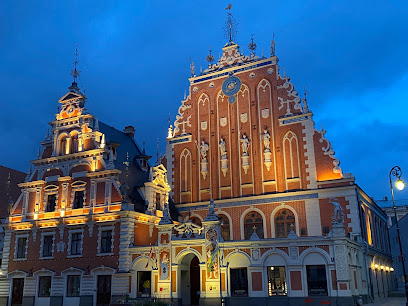
Agenskalns Market
Experience Riga's oldest market: fresh produce, local crafts, and cultural events in a stunning Art Nouveau setting.
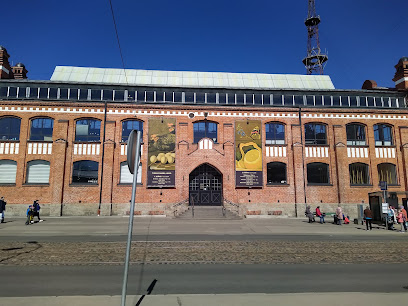
AB Dam
Escape to AB Dam: Riga's riverside park with scenic views, tranquil paths, and a vibrant atmosphere for locals and tourists alike.
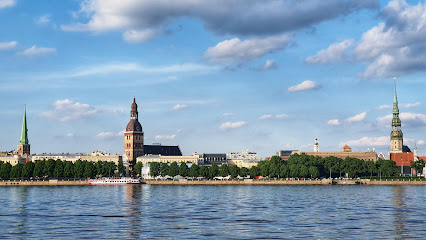
Monument 1905 The Fighters
A powerful monument in Riga honoring the fighters and victims of the 1905 Revolution, symbolizing Latvia's enduring quest for freedom.
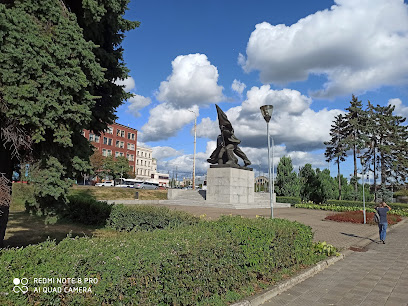
Water Tower
Explore the historic Āgenskalns Water Tower in Riga, an architectural marvel from the early 20th century and a symbol of the city's growth.
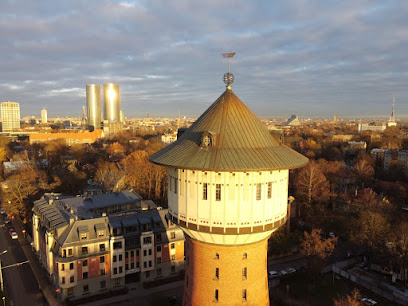
Jugenda Stila Nami, Riga
Explore Riga's architectural masterpiece: a stunning collection of Art Nouveau buildings in the heart of the city, a UNESCO World Heritage Site.
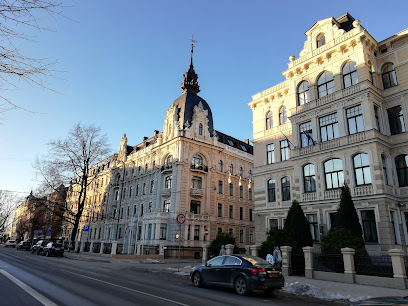
Latvian flagpole
Experience Latvian pride at the Riga Flagpole: a symbol of independence, unity, and cultural heritage in a serene Zemgale Suburb setting.
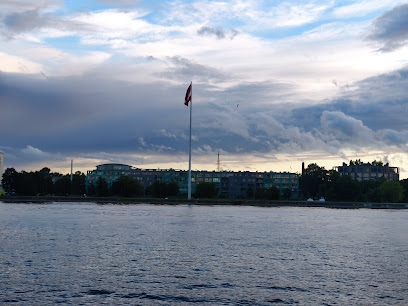
Jūgendstils Āgenskalnā
Discover Riga's architectural gems in Āgenskalns, where Jūgendstils (Art Nouveau) buildings showcase the city's rich artistic heritage.
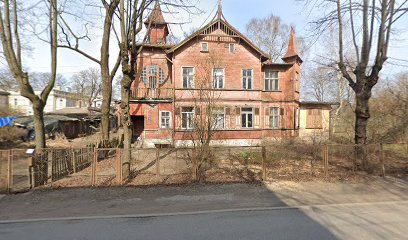
Jugendstil in Āgenskalns
Discover the architectural elegance of Jugendstil in Āgenskalns, Riga, a charming suburb showcasing the city's Art Nouveau heritage.
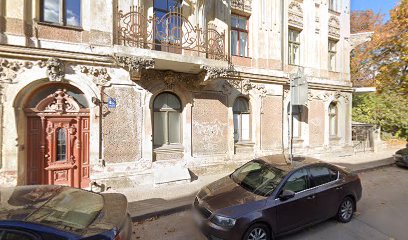
Emīla Dārziņa kapavieta
Pay tribute to a celebrated Latvian composer at his serene final resting place in Riga's Mārtiņa Cemetery.
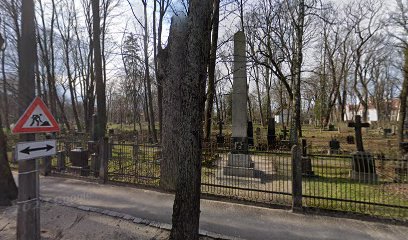
Unmissable attractions to see
The Freedom Monument
Discover the Freedom Monument in Riga, a poignant symbol of Latvia's independence and cultural heritage, surrounded by serene gardens and rich history.
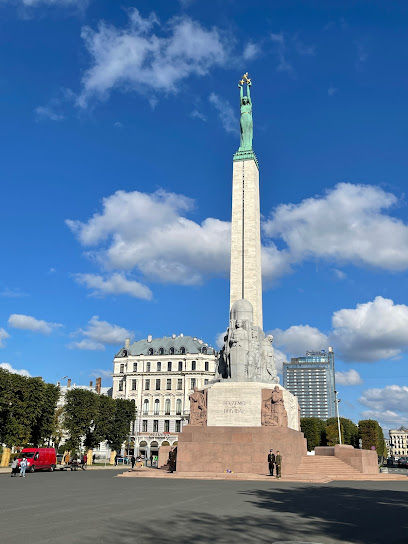
House of the Black Heads
Discover the House of the Black Heads, a stunning architectural marvel and historical museum in Riga, Latvia, showcasing the city's rich cultural heritage.
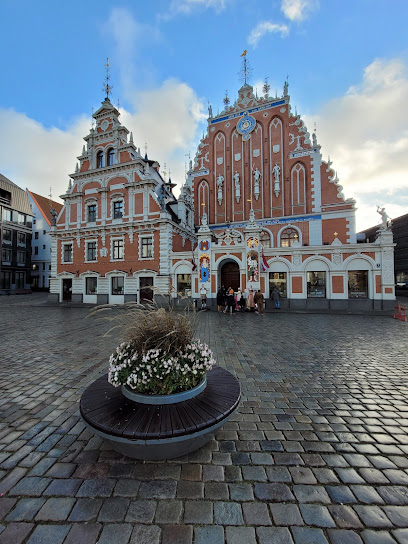
Victory Park
Explore the serene beauty of Victory Park in Riga, where history and nature intertwine in a peaceful urban escape.
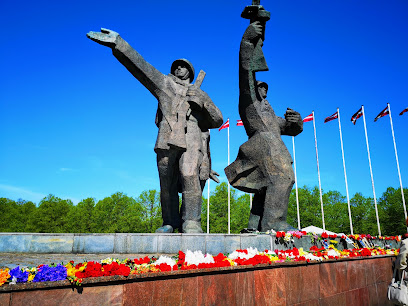
Riga Castle
Discover the enchanting Riga Castle, a historic landmark that embodies Latvia's rich heritage and offers captivating exhibitions for all travelers.
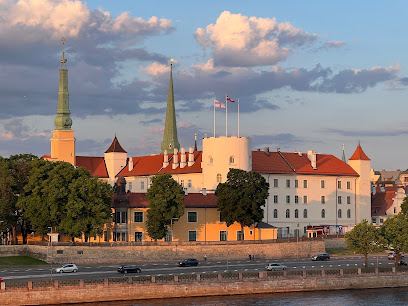
Museum of the History of Riga and Navigation
Discover the fascinating history of Riga and its maritime heritage at the Museum of the History of Riga and Navigation, a cultural gem in Latvia's capital.
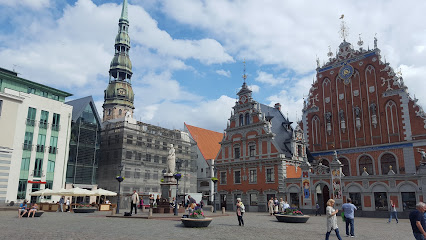
AB Dam
Explore the scenic AB Dam in Riga, a perfect blend of natural beauty and historical significance along the Daugava River.
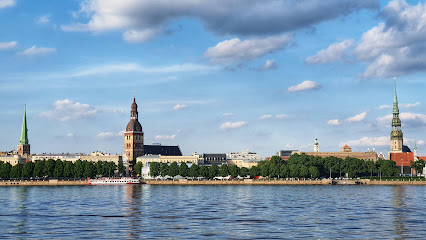
The Carved Tree
Discover the enchanting beauty of The Carved Tree, a unique tourist attraction in Riga that blends nature with local artistry.
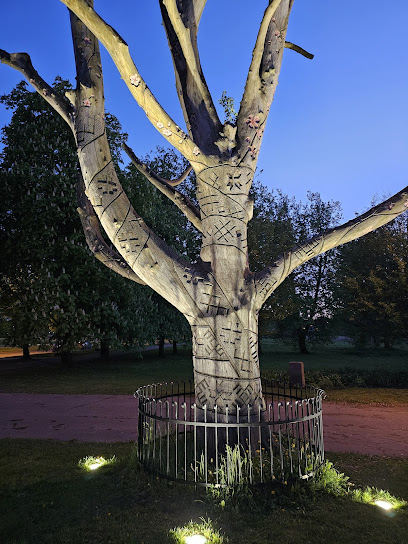
Emīla Dārziņa kapavieta
Explore Emīla Dārziņa kapavieta, a serene cemetery in Riga that honors Latvia's musical heritage and offers a peaceful retreat for reflection.
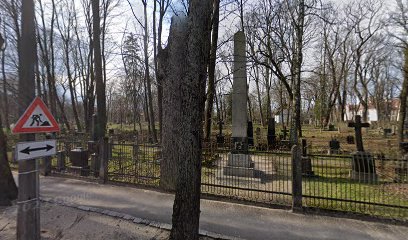
Essential places to dine
Fazenda Bazārs
Experience the delightful fusion of modern cuisine and traditional Latvian flavors at Fazenda Bazārs in Riga.
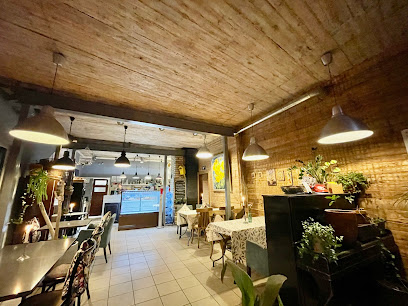
Grill Garden, kafejnīca
Discover delectable grilled dishes in Riga's Grill Garden; where every meal is an unforgettable taste adventure amidst vibrant ambiance.
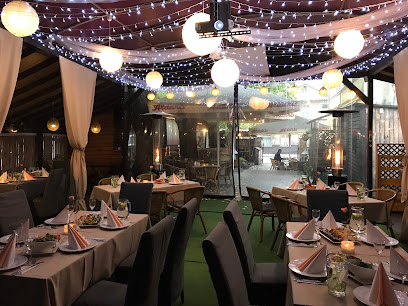
Street Burgers (Meža)
Experience the ultimate burger feast at Street Burgers (Meža) in Riga - where quality meets flavor in every bite.
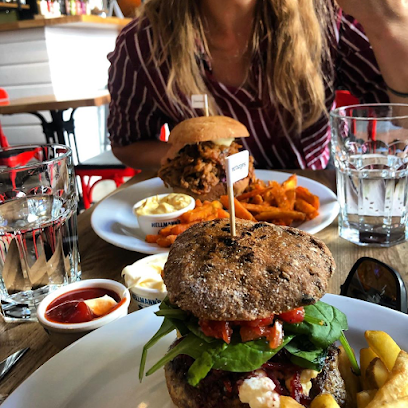
Cepiens
Experience the best of Latvian cuisine at Cepiens - where tradition meets modern flavors in an inviting setting.
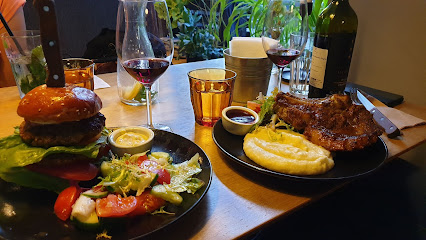
Fei Fei, restorāns
Discover authentic Eastern cuisine at Fei Fei restaurant in Riga – where every dish tells a story of flavor and tradition.
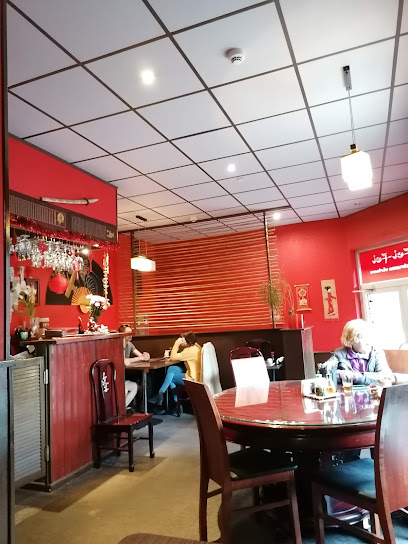
Bocca Buona Restaurant
Discover the essence of Italian dining at Bocca Buona Restaurant in Riga - where authentic flavors meet warm hospitality.
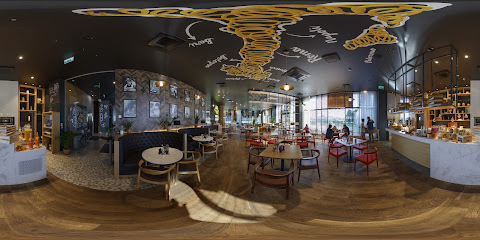
OaK'A Burgers Āgenskalns
Experience gourmet burgers at OaK'A Burgers Āgenskalns - where quality ingredients meet delicious flavors in a cozy setting.
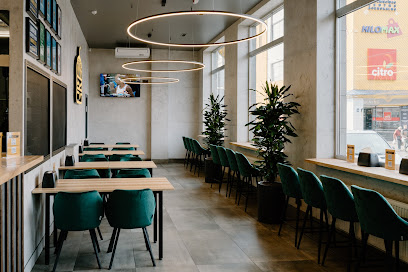
TAURO Restaurant
Discover exquisite modern Latvian cuisine at TAURO Restaurant in Riga's charming Zemgale suburb, where every meal is an unforgettable experience.
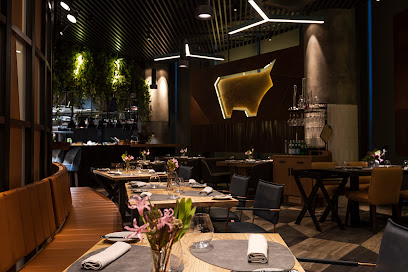
Casa Nostra
Discover authentic Italian flavors at Casa Nostra in Riga's Zemgale suburb – where every dish tells a story.

Rozīte A
Experience authentic Latvian cuisine at Rozīte A in Riga's picturesque Zemgale suburb, where tradition meets modern culinary artistry.
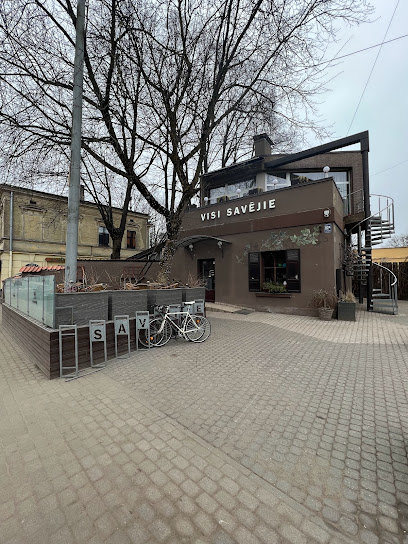
Philly Cheesesteak
Experience the authentic taste of Philly Cheesesteak in Riga - A culinary journey into classic American flavors awaits you.
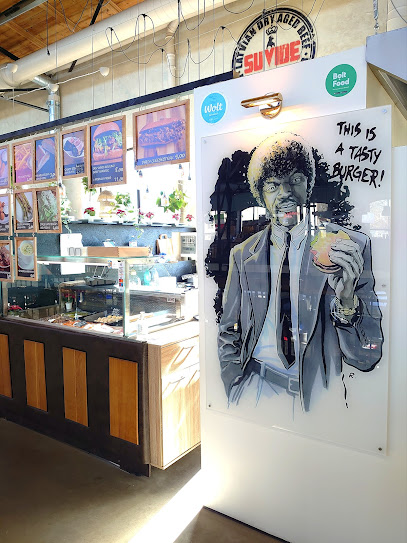
Markets, malls and hidden boutiques
Mall Āgenskalns
Discover a blend of shopping, dining, and local culture at Mall Āgenskalns, Rīga's premier shopping destination.
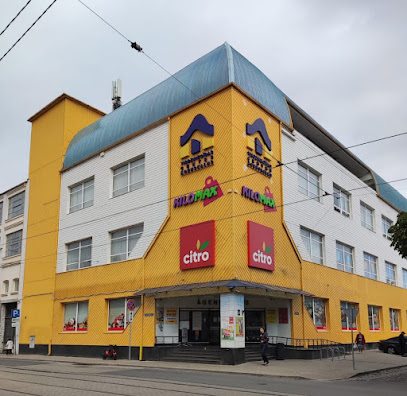
ELKOR Gift Shop suvenīru veikals
Discover unique Latvian souvenirs at ELKOR Gift Shop in the heart of Riga, offering a delightful selection of handicrafts, delicacies, and more.
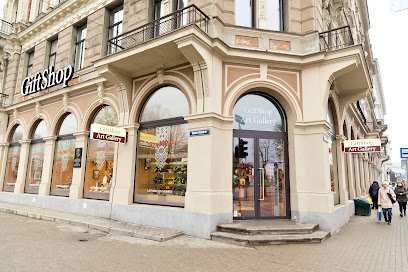
Kilomax
Discover Kilomax, Riga's premier destination for unique vintage clothing and sustainable fashion choices, perfect for every style enthusiast.
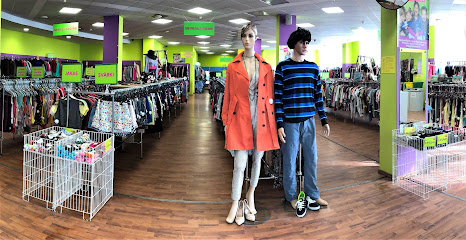
Jānis Sauka shop Āgenskalns
Discover authentic Latvian flavors at Jānis Sauka Butcher Shop in Āgenskalns, where quality meets tradition in every bite.
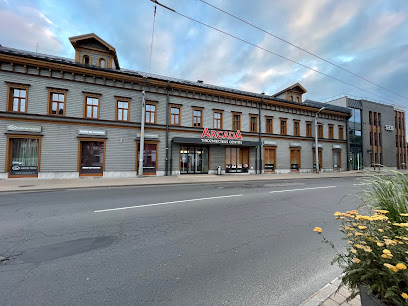
Tirdzniecības centrs Mellene
Discover Tirdzniecības centrs Mellene, a premier shopping mall in Riga offering diverse retail stores, dining, and entertainment for an unforgettable experience.
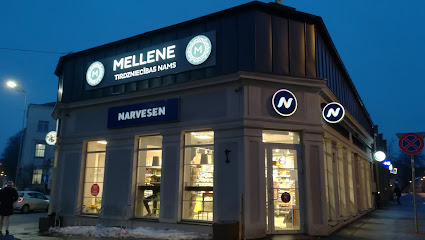
Skandināvs Rīga
Uncover vintage fashion, unique home decor, and sustainable shopping at Skandināvs Rīga, the heart of thrift shopping in Latvia.
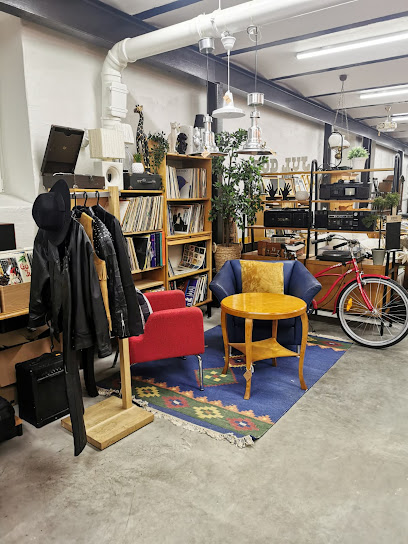
bishu lv
Explore the charming Bišu iela in Riga for a unique shopping experience that captures the essence of local culture and craftsmanship.

SIA DIVATĀ
Explore SIA DIVATĀ in Riga for unique gifts and local crafts that capture the spirit of Latvia, perfect for travelers seeking authentic souvenirs.
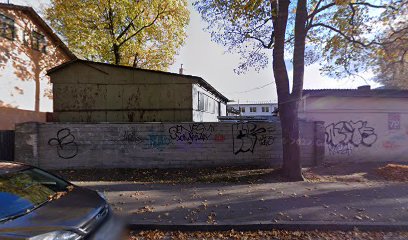
Dressandcode
Explore contemporary Latvian fashion at Dressandcode, a stylish clothing store in Riga's Zemgale suburb.

Keramikas pop up tirdziņš
Discover the charm of handmade ceramics at Keramikas Pop Up Tirdziņš, where local craftsmanship meets unique gift shopping in Riga.
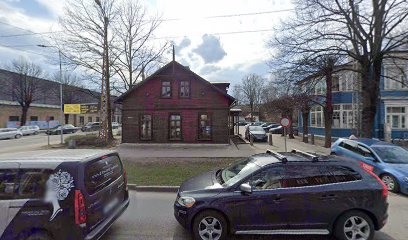
Essential bars & hidden hideouts
Kalnciema Ezītis miglā
Experience the charm of Kalnciema Ezītis miglā, a cozy bar and café in Riga offering local flavors and a relaxed atmosphere.
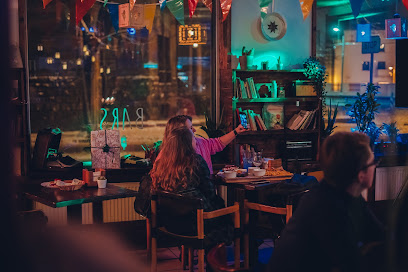
Lokāls Veldze
Discover Lokāls Veldze, a vibrant bar and café in Riga offering local flavors, craft drinks, and a welcoming atmosphere for every traveler.
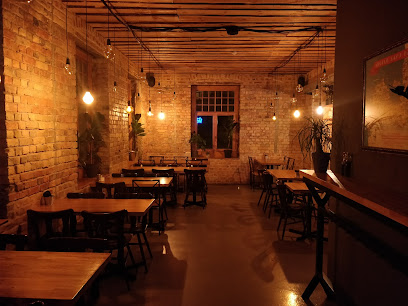
Grill Garden, kafejnīca
Discover Grill Garden in Riga: A culinary haven offering exquisite grilled dishes in a serene and inviting atmosphere, perfect for food lovers.
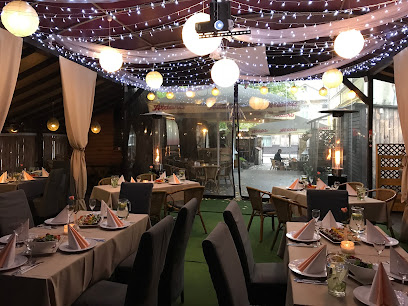
Vinilbārs
Experience the vibrant atmosphere of Vinilbārs in Riga, where music and great drinks come together for an unforgettable night out.
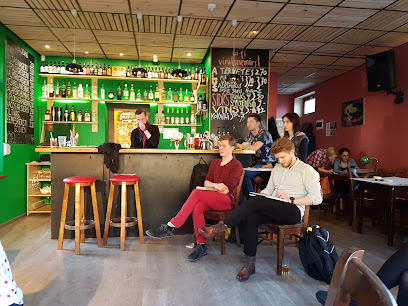
Pils
Experience the vibrant nightlife of Riga at Pils, a cozy bar offering a great selection of drinks in an inviting atmosphere.
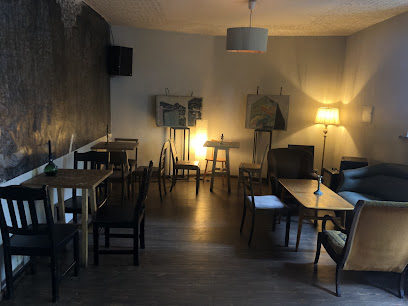
Panorama Restaurant & Bar
Experience exquisite dining with breathtaking views at Panorama Restaurant & Bar in Riga, a perfect blend of culinary delight and scenic beauty.
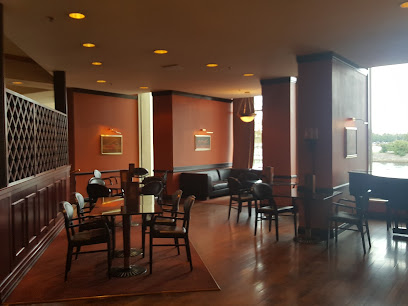
Vest
Experience the vibrant nightlife of Riga at Vest, a lively bar in the Zemgale suburb, offering a wide selection of drinks and a welcoming atmosphere.
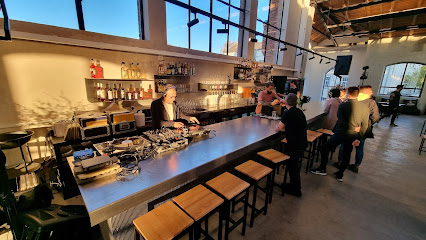
Marmelade
Discover the vibrant nightlife of Riga at Marmelade, a local bar offering a unique blend of drinks and unforgettable experiences.
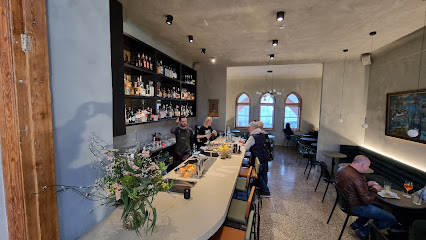
Balodis
Discover Balodis in Zemgale Suburb, a cozy bar in Riga offering local brews and a welcoming atmosphere for travelers.
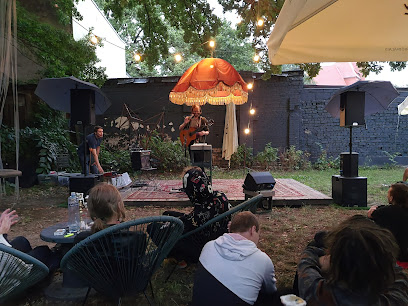
Marina & Ko , SIA, Veikals-bars
Discover the lively Marina & Ko, SIA, a bar in Rīga offering great drinks and a vibrant atmosphere for an unforgettable night out.
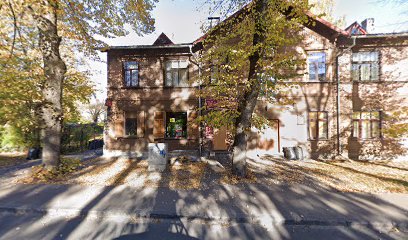
Local Phrases
-
- HelloSveiki
[sveh-kee] - GoodbyeUz redzēšanos
[ooz rehd-zeh-shah-nohs] - YesJā
[yah] - NoNē
[neh] - Please/You're welcomeLūdzu
[loo-dzoo] - Thank youPaldies
[pahl-dyehs] - Excuse me/SorryAtvainojiet
[aht-vai-noh-yet] - How are you?Kā tev klājas?
[kah tehv klah-yahs] - Fine. And you?Labi. Un jums?
[lah-bee. oon yooms] - Do you speak English?Vai jūs runājat angļu valodā?
[vai yoos roo-nah-yat ahng-loo vah-loh-dah] - I don't understandEs nesaprotu
[ehs neh-sah-proh-too]
- HelloSveiki
-
- I'd like to see the menu, pleaseEs vēlētos redzēt ēdienkarti, lūdzu
[ehs veh-leh-tohs rehd-zet ay-dyehn-kahr-tee, loo-dzoo] - I don't eat meatEs netaisos gaļu
[ehs neh-tai-sohs gah-lyoo] - Cheers!Priekā!
[pree-eh-kah] - I would like to pay, pleaseEs vēlētos samaksāt, lūdzu
[ehs veh-leh-tohs sah-mahk-saht, loo-dzoo]
- I'd like to see the menu, pleaseEs vēlētos redzēt ēdienkarti, lūdzu
-
- Help!Palīdzība!
[pah-lee-dzee-bah] - Go away!Aiziet prom!
[ai-zyet prohm] - Call the Police!Sauciet policiju!
[sow-tsee-yet poh-lee-tsee-yoo] - Call a doctor!Sauciet ārstu!
[sow-tsee-yet ahr-stoo] - I'm lostEs esmu pazudis
[ehs ehs-moo pah-zoo-dees] - I'm illMan ir slikti
[mahn eer sleek-tee]
- Help!Palīdzība!
-
- I'd like to buy...Es vēlētos pirkt...
[ehs veh-leh-tohs peerkt] - I'm just lookingEs tikai skatos
[ehs tee-kai skah-tohs] - How much is it?Cik tas maksā?
[tsihk tahs mahk-sah] - That's too expensiveTas ir pārāk dārgs
[tahs eer paa-rahk dahrgs] - Can you lower the price?Vai jūs varat samazināt cenu?
[vai yoos vah-raht sah-mah-zee-naht tseh-noo]
- I'd like to buy...Es vēlētos pirkt...
-
- What time is it?Cik ir pulkstenis?
[tsihk eer poolk-steh-nees] - It's one o'clockIr viens pulkstenis
[eer vyehns poolk-steh-nees] - Half past (10)Pusdesmit
[poos-dehs-meet] - MorningRīts
[reets] - AfternoonPēcpusdiena
[paych-poos-dyeh-nah] - EveningVakars
[vah-kahrs] - YesterdayVakar
[vah-kahr] - TodayŠodien
[shoh-dee-ehn] - TomorrowRīt
[reets] - 1Viena
[vyeh-nah] - 2Divi
[dee-vee] - 3Trīs
[trees] - 4Četri
[cheh-tree] - 5Pieci
[pyeh-tsee] - 6Seši
[seh-shi] - 7Septiņi
[sehp-tee-nyee] - 8Astoņi
[ahs-toh-nyee] - 9Deviņi
[dehv-nyee] - 10Desmit
[dehs-meet]
- What time is it?Cik ir pulkstenis?
-
- Where's a/the...?Kur ir ...?
[koor eer] - What's the address?Kāda ir adrese?
[kah-dah eer ah-dreh-seh] - Can you show me (on the map)?Vai jūs varat mani parādīt (uz kartes)?
[vai yoos vah-raht mah-nee pah-rah-deet oos kahr-tehs] - When's the next (bus)?Kad ir nākamais (autobuss)?
[kahd eer nah-kah-mah-ees ow-toh-boos] - A ticket (to ....)Bilete (uz ....)
[bee-leh-teh oos]
- Where's a/the...?Kur ir ...?
History of Agenskalns
-
Agenskalns, located just south of Riga's Old Town, began as an agricultural area in the 18th century. The name itself is derived from the Agenskalns Hill, which was originally a rural landscape. The nearby Daugava River facilitated trade and transportation, allowing for the growth of this neighborhood as a vital agricultural hub for the city.
-
By the late 19th century, Agenskalns experienced significant industrial growth, paralleling Riga's overall expansion. Factories and warehouses began to emerge, transforming the area into a bustling urban center. The introduction of the railway in 1862 further enhanced connectivity, attracting a diverse population and fostering economic development.
-
The early 20th century saw the rise of remarkable architectural styles in Agenskalns, particularly Art Nouveau. This period left a lasting impact on the neighborhood, as many buildings were constructed with intricate designs and elaborate facades. Notable examples can still be found, showcasing the craftsmanship and artistic expression of that era, which contributed to Riga being recognized as a UNESCO World Heritage Site.
-
Agenskalns, like much of Latvia, faced turmoil during World War II. The Soviet occupation that followed the war brought significant changes to the neighborhood. Many historical buildings were repurposed or fell into disrepair, while new Soviet-era constructions emerged, altering the landscape and cultural fabric of the area. This period marked a time of hardship and adaptation for the local population.
-
After Latvia regained independence in 1991, Agenskalns underwent a process of revival and modernization. Efforts to restore historical buildings and promote local culture have revitalized the neighborhood, making it a vibrant community once again. Today, Agenskalns is known for its lively markets, artistic initiatives, and a blend of historical and contemporary influences, reflecting the resilience of its residents.
Agenskalns Essentials
-
Agenskalns is easily accessible from various neighborhoods in Riga. You can take tram number 6 or 7 from the city center, which will take you directly to Agenskalns. Alternatively, bus lines 21 and 23 also connect the area to central Riga. If arriving by train, the closest station is Riga Central Station; from there, trams and buses are readily available.
-
Agenskalns is well-served by public transport, including trams and buses. The area is also bike-friendly, with several dedicated bike lanes. Renting a bicycle from local shops allows you to explore at your own pace. Walking is also a pleasant option, as many attractions are within a short distance.
-
Agenskalns is generally safe for tourists, but standard precautions should be taken. Avoid poorly lit streets at night and keep your belongings secure, especially in crowded areas. Areas to be cautious in include the outskirts of Agenskalns, particularly near the train tracks. Always stay aware of your surroundings.
-
In case of an emergency, dial 112 for police, fire, or medical assistance. There are several hospitals and clinics in Riga, and pharmacies are readily available in Agenskalns for minor health issues. It's advisable to have travel insurance that covers medical emergencies.
-
Fashion: Do wear comfortable clothing and shoes suitable for walking. Don’t wear overly casual attire when visiting churches or cultural sites. Religion: Do respect local customs, especially when visiting religious establishments. Public Transport: Do validate your ticket before boarding. Don’t eat or drink on public transport. Greetings: Do greet with a friendly 'Labdien' (Good day). Don’t skip the customary handshake. Eating & Drinking: Do enjoy local specialties and try the cafés. Don’t refuse food or drinks offered to you as it may be considered disrespectful.
-
To experience Agenskalns like a local, visit the Agenskalns Market for fresh produce and local delicacies. Engage with local baristas at coffee shops for a true taste of Latvian culture. Attend local events or festivals if they coincide with your visit, as they often showcase traditional music and food. Don't hesitate to ask locals for recommendations on hidden gems in the area.
Nearby Cities to Agenskalns
-
Things To Do in Jurmala
-
Things To Do in Sigulda
-
Things To Do in Cesis
-
Things To Do in Talsi
-
Things To Do in Šiauliai
-
Things To Do in Kuldiga
-
Things To Do in Panevėžys
-
Things To Do in Valga
-
Things To Do in Ventspils
-
Things To Do in Pärnu
-
Things To Do in Kuressaare
-
Things To Do in Viljandi
-
Things To Do in Utena
-
Things To Do in Liepaja
-
Things To Do in Daugavpils










